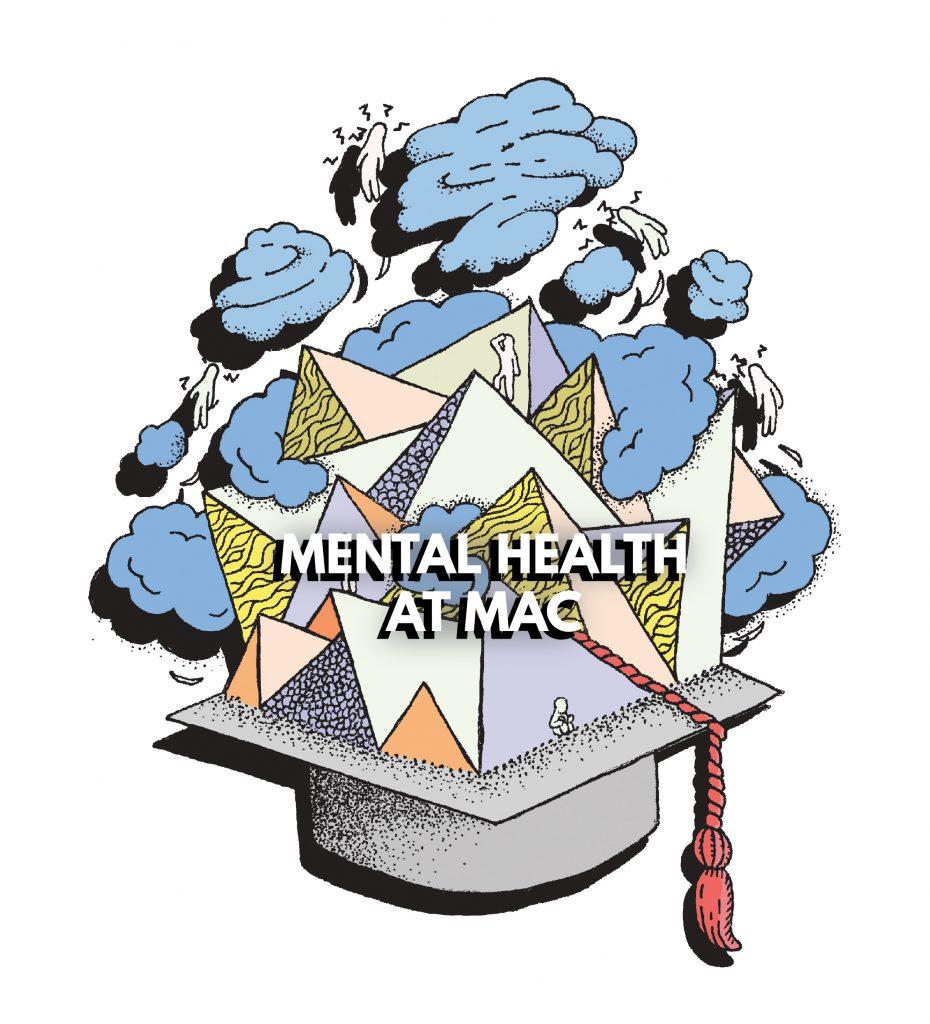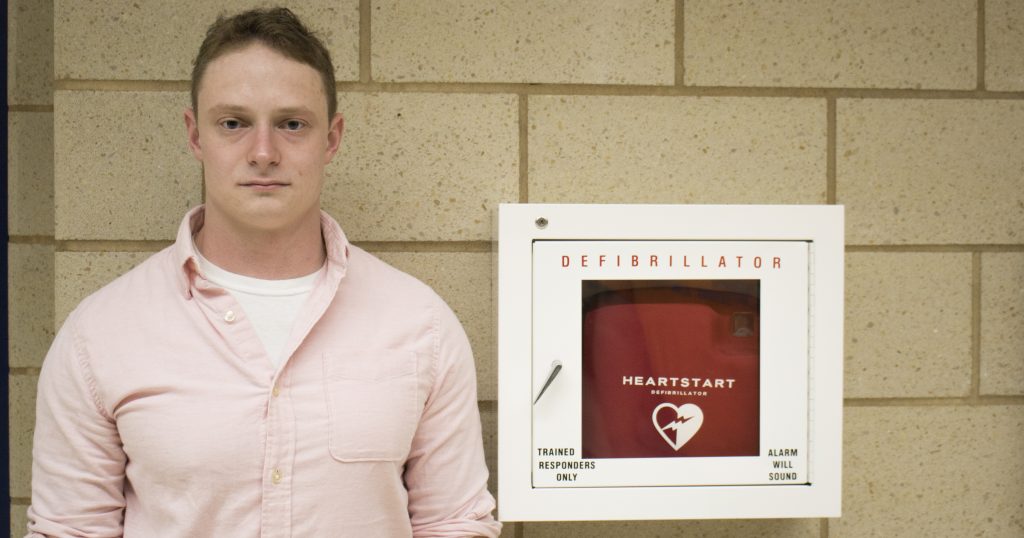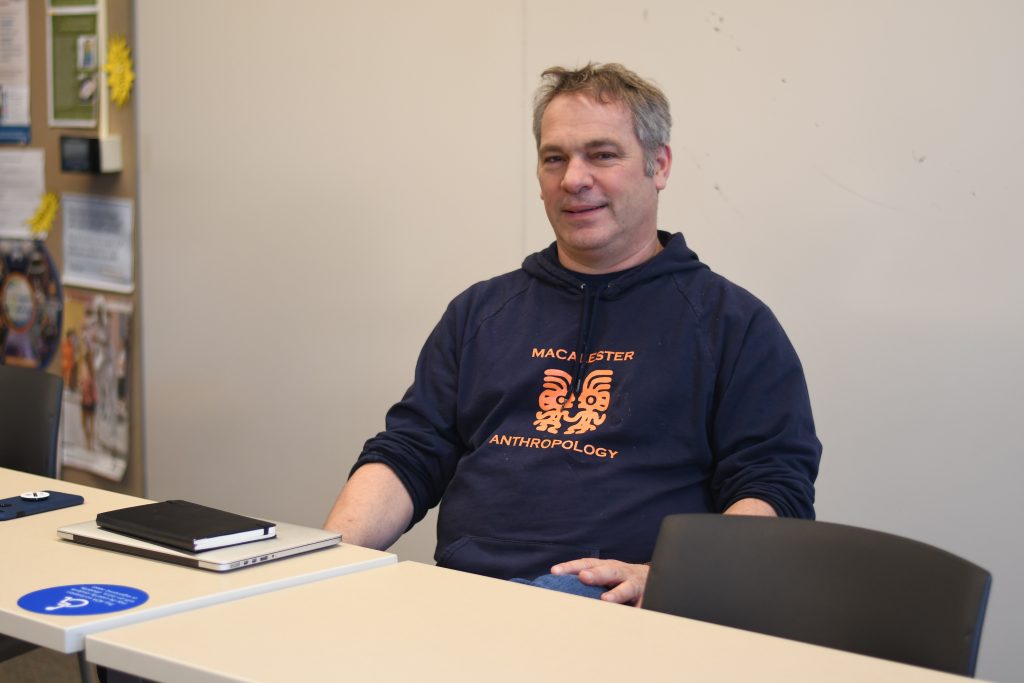Content Warning: Matias Sosa-Wheelock’s death affected all members of the campus community differently, depending on individual experiences that night, in the days following or with mental health and mental healthcare at other points in their lives. This special report includes in-depth reporting on the response to Sosa-Wheelock’s death as well as the state of mental health and healthcare on campus more broadly. While we have refrained from including graphic details, it may nonetheless be difficult to read. Before beginning, please be aware.
For a list of support resources on and off campus, visit this page.
Health and Wellness at Carleton College
Almost two years after the Carleton College community experienced student suicide, the Northfield school has made significant strides in increasing its suicide prevention and mental healthcare provision efforts.
Unlike at Macalester where the Laurie Hamre Center for Health and Wellness houses medical, counseling and health promotional services, Carleton has two separate entities: Student Health and Counseling (SHAC) and the recently-created Office of Health Promotion (OHP). The two collaborate on mental health issues.
“It’s really important to have a focus for a campus on both the work of providing service, which is primarily what SHAC does… [and] the preventative work [that] the Office of Health Promotion does on our campus,” SHAC Director Marit Lysne said. “All counseling centers have the responsibility of not only serving students who have already come to them, but also to try to be reaching students who are wanting to get in and those students who have yet to seek services,” Lysne said.
But a gulf between supply and demand means that not all students are happy with the level or amount of care provided.
“I think SHAC would say the problem lies in student perceptions of SHAC, whereas I think the student would say the perceptions are negative because the services are inadequate,” Carleton senior and President of its Mental Health Awareness Collective Lauren Kempton said.
Another concern is that the counseling staff doesn’t match the diversity of the student body – specifically, that the staff lacks any female-identifying counselors of color, a situation that students are campaigning to change.
Macalester Associate Dean for Student Services and Director of the Health and Wellness Center Denise Ward spoke to how Macalester prioritizes staff diversity. “It’s a goal of ours to have diverse identities in our staff. Not just in counseling, but throughout the whole operation. We have someone who identifies as African-American, biracial, Pacific Islander, someone from China. We also have different religious identities represented.”
The creation of OHP at Carleton provided relief for campus institutions carrying some of the responsibility for health promotion and allowed for their work to expand.
JED Campus program and GLS Grant
Carleton’s Office of Health Promotions has expanded its capacity through the JED Campus program.
The program strives to “protect emotional health and prevent suicide” in teens and young adults, and operates on two guiding principles: campus-wide responsibility for emotional wellbeing and suicide prevention, and support from campus leaders, including the President and Board of Trustees, for that work.
“Often students, faculty, staff and parents think of these mental health issues on campus being an issue for the counseling center, [but] that is far, far, far too limited,” Lysne said. “This is an issue that affects everyone on campus, and everyone on campus has a role to play.”
Macalester’s Director of Counseling, Ted Rueff, has looked into JED campus certification for Macalester in hopes of a similar result.
“There is some utility, I think, in getting an outsider’s perspective on what’s going on,” Rueff said. “They may bring some new lenses to situations that we may have blind spots around.”
Using JED wouldn’t necessarily mean the campus would adopt a slew of new strategies around its mental health treatment practices.
“Let’s say the JED Foundation has some ideas for delivering services in a completely different way,” Vice President for Student Affairs Donna Lee said. “We would [then] reassess and re-evaluate and rethink how we deliver the services.”
JED isn’t the only option on Macalester Health and Wellness administration’s mind. Rueff and Center Director Denise Ward have also looked into providing more online resources, like Live to Learn or SilverCloud, to help teach students skills to handle anxiety, depression.
Although partnering with JED has worked well for Carleton, Rueff wants to make sure it’s the right fit for Macalester before completing what would be a costly and time-consuming application.
“You have to know exactly what [it] is that you want to get out of the grant, and then do a cost-benefit analysis about whether it’s worth the grant-writing and administration and reporting that is oftentimes entailed,” Rueff said. “All those things will steer resources away from service provision. So you need to [decide] whether they would be worth it and in what circumstances.”
If Macalester opts to bring a comprehensive program like JED to campus, it would likely be for the 2019-2020 academic year due to the budgeting schedules.
The JED program and a desire to expand other mental health related work of OHP motivated Carleton to seek additional funding for its mental healthcare programming.
One source for additional funding was the the Garrett Lee Smith (GLS) Campus Suicide Prevention Grant, which is made available to higher education institutions by the federal government’s Substance Abuse and Mental Health Services Administration with the goal of reducing college suicides.
Using areas for improvement highlighted by the JED program in their application, Carleton received a GLS grant for $98,459 last spring.
“It was really in coordination that we had major gaps,” Carleton Director of Health Promotion Janet Lewis Muth said. “A big part of what we’ve done with the grant is bring lots of people to the table to make sure that we’re coordinating [suicide prevention] efforts… so that when the Dean’s office look[s] at policies, they [are] making sure that they’re communicating with other offices that will be impacted by those policies.”
The GLS grant, among others, has also been an avenue Rueff has considered to fund Macalester’s potential transition to a JED campus.
“I’ve been thinking recently about the utility of doing a kind of environmental scan of the likes that JED campus would provide,” Rueff said, “and it’s at a cost that would probably necessitate a grant application. That’s what got me thinking about [GLS].”
Carleton’s Mental Health Training and Programs
GLS funding is helping the OHP implement a three-tiered system of mental health and suicide prevention training that focuses on identifying and helping students who are struggling.
The first, most accessible tier is a 30-45 minute online program about suicide risk called Question, Persuade and Refer (QPR). Lysne and Muth hope to make completion of this mandatory for all incoming students, similar to drug, alcohol and sexual misconduct trainings.
Macalester Voices on Mental Health co-chair Kendall Dickinson ’18 firmly believes that training in orientation for campus and peer leaders as well as students is important. “I think there should be training. Definitely. Like the Sexy Training, but for mental health.”
National Alliance on Mental Illness (NAMI) Minnesota Director Sue Abderholden ’76 also recommended making QPR mandatory, especially for faculty, as it is for K-12 teachers in Minnesota public schools.
The second tier is a set of in-person trainings building off QPR and specialized to people’s particular roles on campus. The final tier is Mental Health First Aid training, an in-person process that takes eight hours to complete.
The GLS grant has provided resources to expand the capacity for training, so Carleton can train as many student, staff and faculty as possible to, in Muth’s words, “recognize the signs and symptoms that somebody that they care about might be dealing with a mental health challenge.”
Another resource that helps connect students and staff when students observe concerning behavior of any sort are Community Concern Forms. The forms were created as a result of a review of Carleton’s Title XI system in 2009.
“We realized that there were many concerns that hadn’t been brought to the attention of administrators because students believed they didn’t rise to the level of a violation of the sexual misconduct policy but were still really concerning,” Lysne and Muth wrote in an email to The Mac Weekly. “So we created a vehicle for easier reporting of ‘lower level’ concerns. In doing so, it provided a means for our community to report concerns about a variety of issues, not just concerns that were sexual in nature.”
“That way it’s not all on administrators or professors to recognize mental illness,” Kempton said, “because oftentimes friends are the ones who know best.”
According to Lysne, 25 percent of Carleton’s student body sought counseling services last year, as compared to about 20 percent of Macalester’s student body. Results from a 2017 Healthy Minds Study – an online survey study “examining mental health, service utilization, and related issues among undergraduate students” – showed that 14 percent of Carleton students experience suicidal ideation. According to results from the National College Health Assessment, a survey distributed by the American College Health Association, 14.3 percent of 456 Macalester students surveyed seriously considered suicide sometime within the last 12 months.
“Two Carleton students died by suicide last year, and that was just a hard thing to go through as a campus,” Kempton said. “I think there’s definitely been a pivot towards prioritizing suicide prevention in particular, and also mental wellness in general.”
Minn. Schools not Alone in the Struggle
Changes on college campuses do not happen in a vaccuum. State Senator Matt Klein, who represents the 52nd District of Minnesota, and is also a hospitalist at Hennepin County Medical Center has seen firsthand how the battle for mental health is affecting people all over Minnesota.
“During my campaign, almost every other door, somebody would talk to me about what are we doing about mental health,” Klein said. “It’s being recognized as a more urgent problem than I’ve ever seen in my lifetime.”
While it seems that that the conversation around mental health has shifted, the physical resources around mental health remain laggard in hospitals as well as college campuses.
At the Hennepin County Medical Center, support for people with serious physical injuries outstrips support for those with serious mental health concerns. “[The stabilizaiton room] is a multimillion dollar high tech facility with specialized lights and radiographic equipment. It’s brand new and well-staffed at all hours of the day and night.
“And then you go to our psychiatric wards and they have not been altered in any respect since 1971,” he continued. “There are still four bed units, ‘One Flew Over the Cuckoo’s Nest’-type stuff. It’s very primitive and probably unethical.”
“We should treat mental health like all other illnesses or injuries,” Klein continued. “And we are a long way from sort of achieving that.”


















Wanda Fraser • Sep 11, 2019 at 11:01 am
Into YouTube video embed script you can also stipulate parameters according to your hope like width, height or even border colors.
Ava Roberts • Sep 5, 2019 at 5:20 am
Itís remarkable to go to see this website and reading the views of all friends concerning this piece of writing, while I am also eager of getting knowledge.
Willie • Aug 12, 2019 at 6:12 pm
Thanks I needed this
Kary Hesselman • Jul 22, 2019 at 8:38 pm
Mass parsite http://bit.ly/2W9CVkn